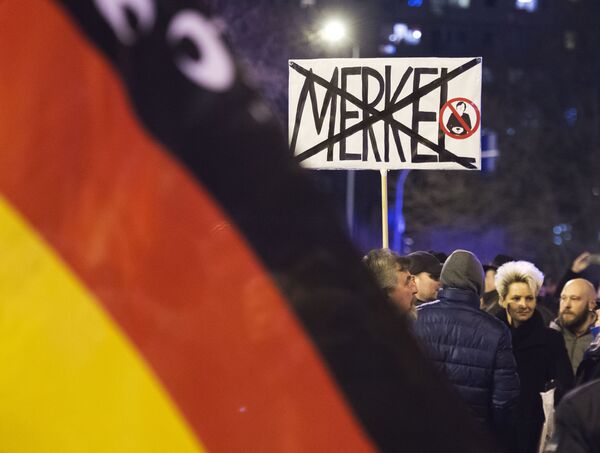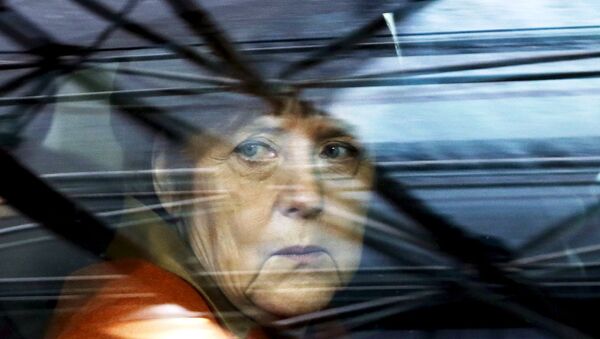The poll, conducted for German tabloid Bild, found that Merkel's Christian Democratic Union party (CDU) and its Bavarian sister group, the Christian Social Union (CSU), would receive 30 percent of the vote if elections were held today.
Meanwhile, support for the grand coalition's junior partner, the Social Democrats (SDP), is sitting at just 19 percent, meaning that overall support for the center-right/center-left grand coalition is under 50 percent for the first time since the 2013 elections.
#Merkel’s grand coalition falls below 50% in latest @bild poll. #AfD steady at 15%. #Germany pic.twitter.com/LyXyLVQ4ax
— Matthew Karnitschnig (@MKarnitschnig) May 31, 2016
The slide comes after the two parties won a combined 67 percent of the vote in the last federal election in 2013.
In a sign that Germans are becoming increasingly dissatisfied with the current ruling coalition, support for other parties is growing, with the recent poll putting the far-right AfD party on 15 percent and the Greens on 13 percent.
This trend was backed up by recent regional elections, which saw major gains for minor parties across the country.
Concerns Remain Over Migration
Much of the government's drop in popularity has stemmed from Berlin's approach to Europe's migration crisis, with many unhappy at Merkel's open-door policy, which saw more than one million asylum seekers arrive in Germany in 2015.

The policy has led to critics from within the government, while Horst Seehofer, leader of the Bavarian CSU has repeatedly criticized Merkel for failing to place an upper limit on the number of refugees Germany is willing to accept.
Others say that Berlin's open-doors approach has fueled anti-immigrant sentiment in Germany, seen through support for the AfD, along with the increased number of attacks committed against new arrivals in the country.
There is also considerable public opposition to the proposed Transatlantic Trade and Investment Partnership (TTIP) between the EU and US, with many protesting against Chancellor Merkel's support for the deal.
Alarming new official German data: no of attacks in 2014 on #refugee homes: 199; in 2015, 1031 attacks @hrw @hrw_de pic.twitter.com/J1Pcs0cjYd
— Hugh Williamson (@HughAWilliamson) May 24, 2016
Commentators have also suggested the poor polling news could have an effect on relations within the grand coalition, with Angela Merkel being urged to harden the government's stance on immigration, while SPD leader Sigmar Gabriel is expected to differentiate from Merkel's CDU ahead of next year's federal election.
The next German election will be held between August and October 2017.





